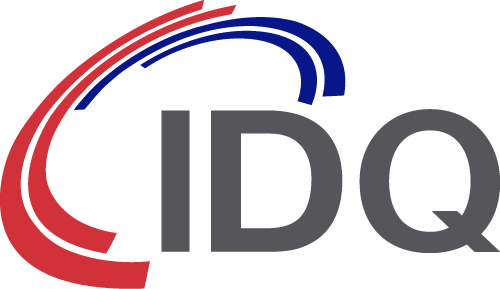OpenQKD – a snapshot of year one from IDQ’s perspective
OpenQKD is a collaborative European project (in the framework of H2020) that will install and run test-beds in several European locations to showcase Quantum Key Distribution (QKD) solutions under a variety of different use case scenarios. This will demonstrate the performance and integration of QKD in real-world optical fibre networks and assess its business value. OpenQKD has been running for one year now, so here is an overview of the project to date from an IDQ perspective.
Why OpenQKD?
The European Commission and EU member states are convinced that QKD is a key element in securing our data transiting European communication channels. This triggered the European Quantum Communication Infrastructure (QCI) initiative to deploy QKD links on large scales all over Europe. OpenQKD is a public funded project that serves as a first opportunity to demonstrate the maturity of the technology, the ease of integration and its value for users.
OpenQKD objectives and some numbers
The OpenQKD project comprises a wide range of activities, driven by 38 partners from industry, academia and other public and private institutes. The consortium focuses on the applications of QKD, its compatibility with other IT equipment and its integration in real-world environments. More than 40 use cases from all relevant sectors (e.g., government, health care, finance, critical infrastructure) are implemented and tested in 16 locations across Europe. International standardisation activities are supported by the partners, who come from 13 EU member states and associated countries.
A highlight of the project is the Open Call opportunity, that allows new associated partners to bring their QKD use cases within the auspices of the project. The QKD resources are provided by the project, which also covers the cost of the installation and setup. Another way for interested organisations to get involved is to sign up to the Quantum Industry Board, which is a platform to get in direct touch with the OpenQKD consortium.
All these activities are funded as a H2020 project for a runtime of three years. The total funding amounts to €15 million, which is complemented with €3 million in-kind contributions from the for-profit partners of OpenQKD.
Role of ID Quantique
ID Quantique (IDQ) plays a significant role in OpenQKD by supplying the majority of available QKD systems. We support the testbed and use case coordinators in all phases of the project: designing and planning the use cases, installing the QKD equipment and providing technical support during the test. IDQ is also actively involved in standardisation activities, development of interoperable interfaces and next-generation prototypes, and in the management and communication of the project.

Snapshot of the project
At the beginning of the project, IDQ supported our Geneva partners (Les Services Industriels de Genève (SIG), the University of Geneva and Mt Pelerin) in setting up their use cases. The local service provider (SIG) is testing IDQ’s QKD to secure their Datacentre Interconnect technology, which will be followed up by a smart grid use case. SIG is also considering the application of quantum cryptography in their critical infrastructure network. Mt Pelerin is a young FinTech start-up that develops innovative blockchain solutions to support the digitisation of the financial and banking sector. The Quantum Vault is a high-end solution to protect digital crypto assets from data thefts and losses.
Further collaborations with other testbeds and use case partners of OpenQKD are in a preparation phase. For example, our partner Deutsche Telekom is developing several use case tests in Berlin, using IDQ equipment enhancing 5G authentication and security. British Telecom continues their long-term QKD efforts in the Cambridge area with a 5G network slicing use case including QKD. Similarly, we work with the telecom operators REDIMadrid and Telefónica to run a series of tests on use cases involving SDN and VPN networks. In Austria, we are contributing to an exciting use case led by fragmentiX for a secure transfer of medical data within a network of hospitals and datacentres. Finally, French universities around Paris, with the support of Orange, are going to launch a QKD test to secure their academic network. Other use case deployments will follow later.
In addition to real-world implementations, OpenQKD represents an excellent opportunity to enhance the collaboration with existing partners like ADVA, to further improve the seamless integration of QKD in modern Optical Transport Networks.
The first Open Call is now closed, but the second call will be announced shortly, with a deadline of spring 2021. The consortium received many excellent proposals (from Europe and beyond) that are now being evaluated. For the next year’s Open Call please get in touch with us if you wish to participate.
IDQ is also at the intersection between the testbed development and standardisation activities. For example, in 2020 the international QKD community at ETSI is actively contributing to a Protection Profile for QKD systems, which is a crucial step for certification of QKD devices in the framework of Common Criteria. This is supported by IDQ and several other partners of OpenQKD. Lately, IDQ has also contributed to the coordination of the first 2 recommendations on QKD matters in ITU-T.
We thank all the partners of OpenQKD for their fruitful and constructive collaboration. The results of the project, at the beginning of the quantum decade, will inform the future development of the European QCI and other large-scale initiatives worldwide.
Data is an organisation’s most precious asset. Making data secure is paramount for IDQ. We are there to help you get prepared and start your journey towards quantum-Safe Security. Don’t hesitate to contact us.


